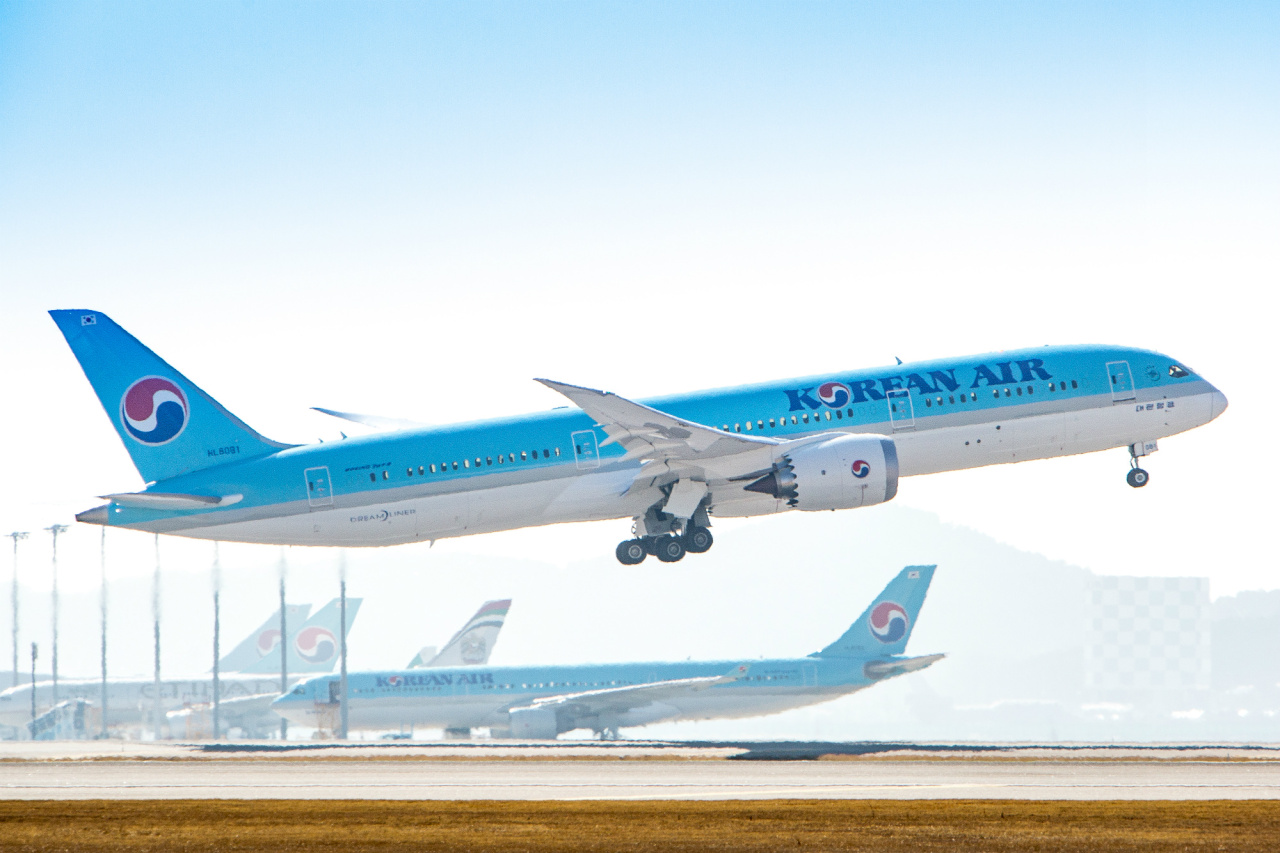Korean Air’s plan to acquire financially-troubled rival Asiana Airlines is facing a bumpy road as the deadline for the 1.8 trillion won ($1.6 billion) deal has been pushed to the end of this year.
The takeover plan was first announced in November last year, making headlines that the two South Korean full service carriers would merge, giving birth to one of the world’s ten biggest airlines.
In recent months, however, slow progress for the deal -- which was initially set to be complete by the end of June -- has been met with frustration and concern from those involved in the process including airline staff and the Korea Development Bank, Asiana’s main creditor.
Once seen as Korean Air’s rival, Asiana has short-term liabilities worth over 5 trillion won set to mature within a year.
“As the review of the merger has been delayed, there is a sense of unrest and concern among Asiana staff over unstable management. They want the process to wrap up swiftly for financial stabilization,” one industry official, who wished to stay anonymous, said.
In a press conference last month, Lee Dong-gull, the chairman of the state-run bank said integration of Korean Air and Asiana Airlines is “inevitable” and “essential” for the Korean airline industry to survive and gain competitiveness in the global market. He also said it was “regretful” that the approval process has been slow.
“I hope the (local authority) will approve the deal as soon as possible,” he said.
Where does the deal stand now?The deal has to receive approval from a total of nine antitrust bodies around the world including South Korea, the US and EU and China. So far, three have given the green light – Turkey, Taiwan and Thailand.
On Tuesday, South Korea’s Fair Trade Commission said in a report to the National Assembly that its review of the acquisition will be complete within this year. The process looks into the deal’s economic impact on the public.
During an annual parliamentary review later on the same day, FTC Chairperson Joh Sung-wook told lawmakers that experts had concluded that integration of the two airlines could limit competition and that certain measures are “inevitable.”
She also said the regulatory body has agreed to start talks with the transport ministry on the matter.
What is causing the delay?The acquisition plan was first delayed by three months as the FTC’s reviewing process took longer than expected.
Last month, it was delayed again by another three months.
It has been 10 months since the airline first submitted requests to antitrust watchdogs for approval.
Though the airline seeks approval from multiple countries, Hurr Hee-young, a professor at Korea Aerospace University, said getting the go-ahead from the antitrust watchdog at home will speed up the process.
“It seems the antitrust bodies (in other countries) are watching what the South Korean government is doing. With the idea of one flag carrier per country being prevalent in many other countries, anticompetitive concerns cannot be used against the deal,” he said.
Professor Hurr disagrees with comparing Korean Air ‘s takeover of Asiana to other cases such as the recent alliance between American Airlines and JetBlue Airways, which has faced attempts to block the partnership over concerns that it could eliminate competition. Instead, the FTC might be looking at low cost carriers which heavily rely on domestic flights.
“When three of their low cost carriers are integrated and we are left with Jeju Air and T‘way Air (as competitors), the question then will be whether it will lead to an airfare hike,“ he pointed out.
Korean Air and Asiana operate a total of three low-cost carriers – Jin Air, Air Busan and Air Seoul. Last year, the KDB said gradually combining these three low-cost airlines and operating them as one is an option being considered.
By Yim Hyun-su (
hyunsu@heraldcorp.com)








